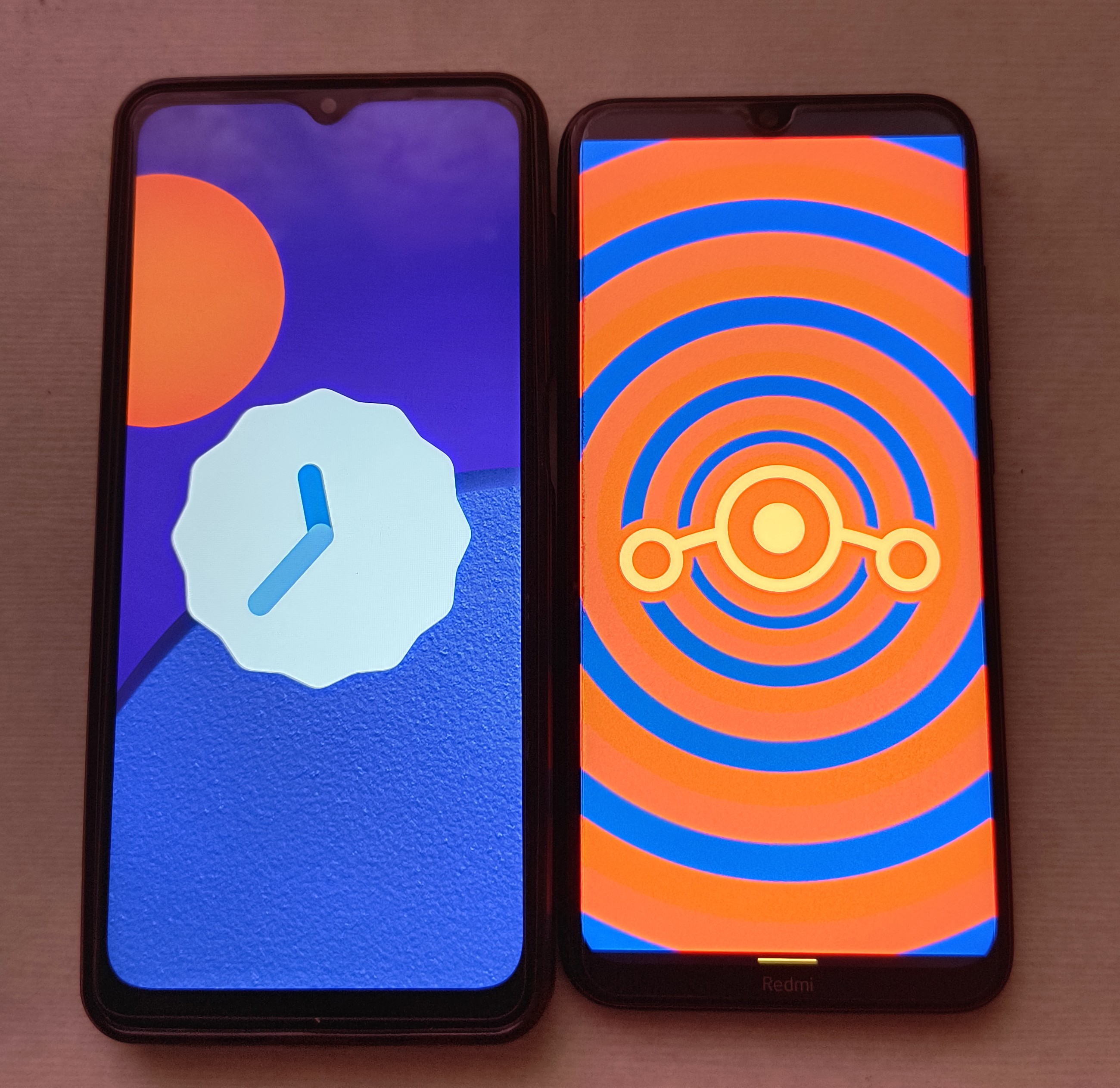Two Phones, Too Much?
When I was starting out as a working professional two years ago, I made a pivotal decision that would redefine the way I interact with technologies. As a privacy advocate and free software enthusiast, my aim was to reduce my reliance on Google Services and other non-free software. This decision propelled me to carry two phones to compartmentalize my online activity.
My primary phone is a Xiaomi Redmi Note 8, running LineageOS 18.1 and Android 11 (without Google Services). My work/non-free software running phone is a Samsung M12 running Google Android 13 with OneUI version 5.1.

I bought Redmi a couple of months before covid-19. I loved how it boasted an impressive camera, long-lasting battery, in-fact it checked every box in the features department. The catch-22 was the intrusive personalized advertising and the burden of pre-installed bloatware on the device.
For obvious reasons, I switched to LineageOS because it offered a clean user experience, particularly enjoying its UI. Additionally, it provided regular security patches, a feature often lacking in the original MIUI. To this day, I still receive security patches in lineageOS which is just awesome. The trade-off sadly was a borked camera. * which I kind of got accustomed too :(
On the other hand, I relied on my Samsung Google Android device, particularly for financial transactions via UPI, using proprietary spyware like WhatsApp to be a part of pointless groups, order food through Zomato/Swiggy, book Uber, or engage in work activities such as checking mail.
Amidst all of this, I was consciously using free and open source applications (whenever possible) across both my devices. Some of them include:
- F-Droid
- Brave Browser
- KDE Connect
- Mozilla Firefox (or any fork of it)
- Signal Messenger
- A few Simple Mobile Tools applications - Contacts, Gallery, Dialer. ( do not use it anymore since the apps are not open-source)
- VLC Media Player
- Telegram FOSS (fork)
Having two phones offer some other advantages which I can appreciate. Firstly, I won’t have to worry about battery life. With two devices, I can distribute my usage, lessening the strain on each battery. This ensures I always have a backup available in case one device runs out of power. Also since I’m not particularly fond of power banks, this setup suited me perfectly.
I also prefer keeping my data locally rather than storing it in the cloud. So I transitioned to storing all my media, documents, and important files on a hard drive, with backups stored on my devices. This approach ensures my data is easily accessible, under control and compartmentalized. This was perfect for my threat modeling, however it does come at a cost of inconvenience. Carrying two phones isn’t particularly comfortable, but it’s a compromise I’m willing to make.
So yeah, I am glad to have made this decision, and I am grateful for the community of developers and contributors who have built foss projects and made them publicly available for free.
Free software is a matter of liberty, not price. To understand the concept, you should think of ‘free’ as in ‘free speech,’ not as in ‘free beer’.